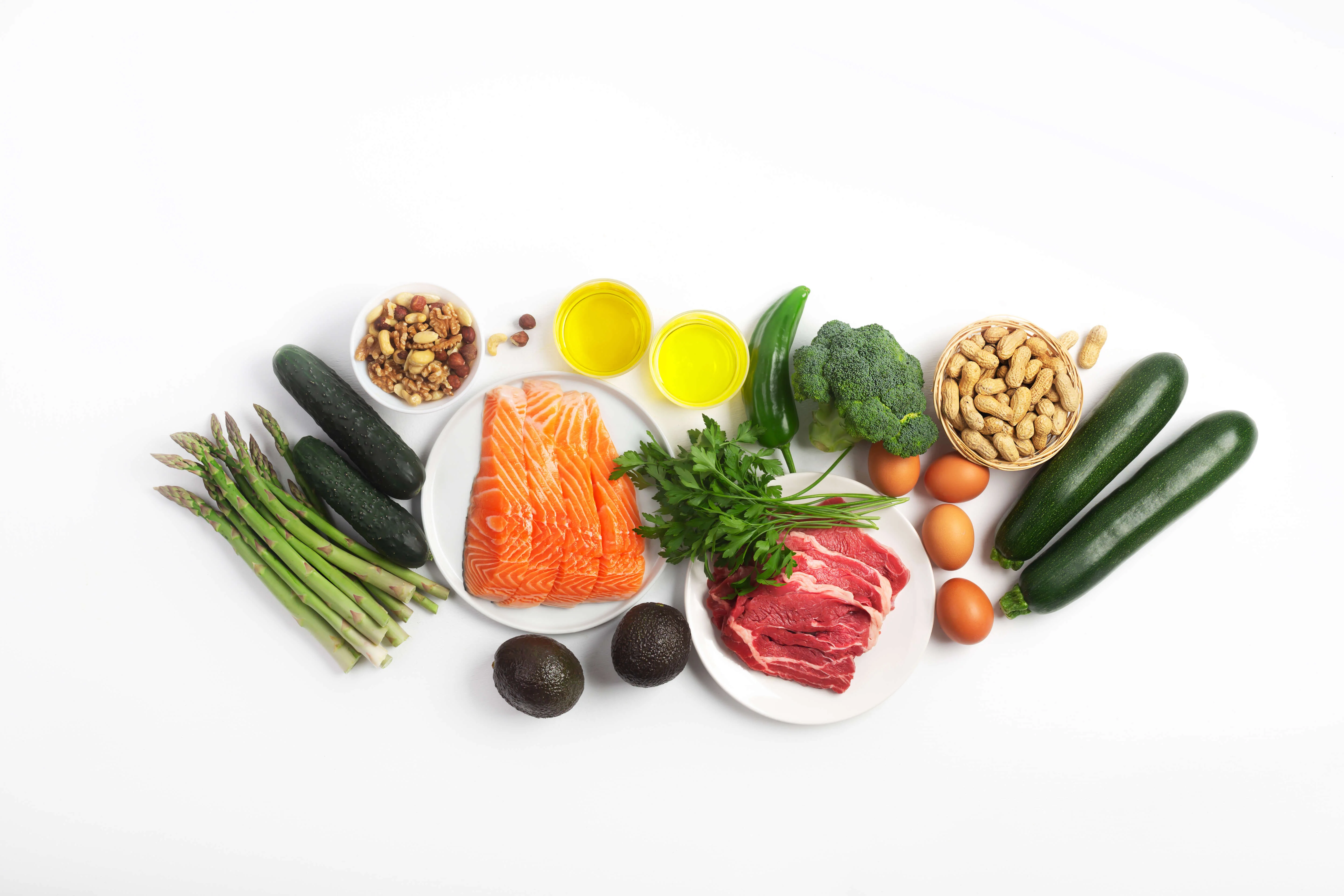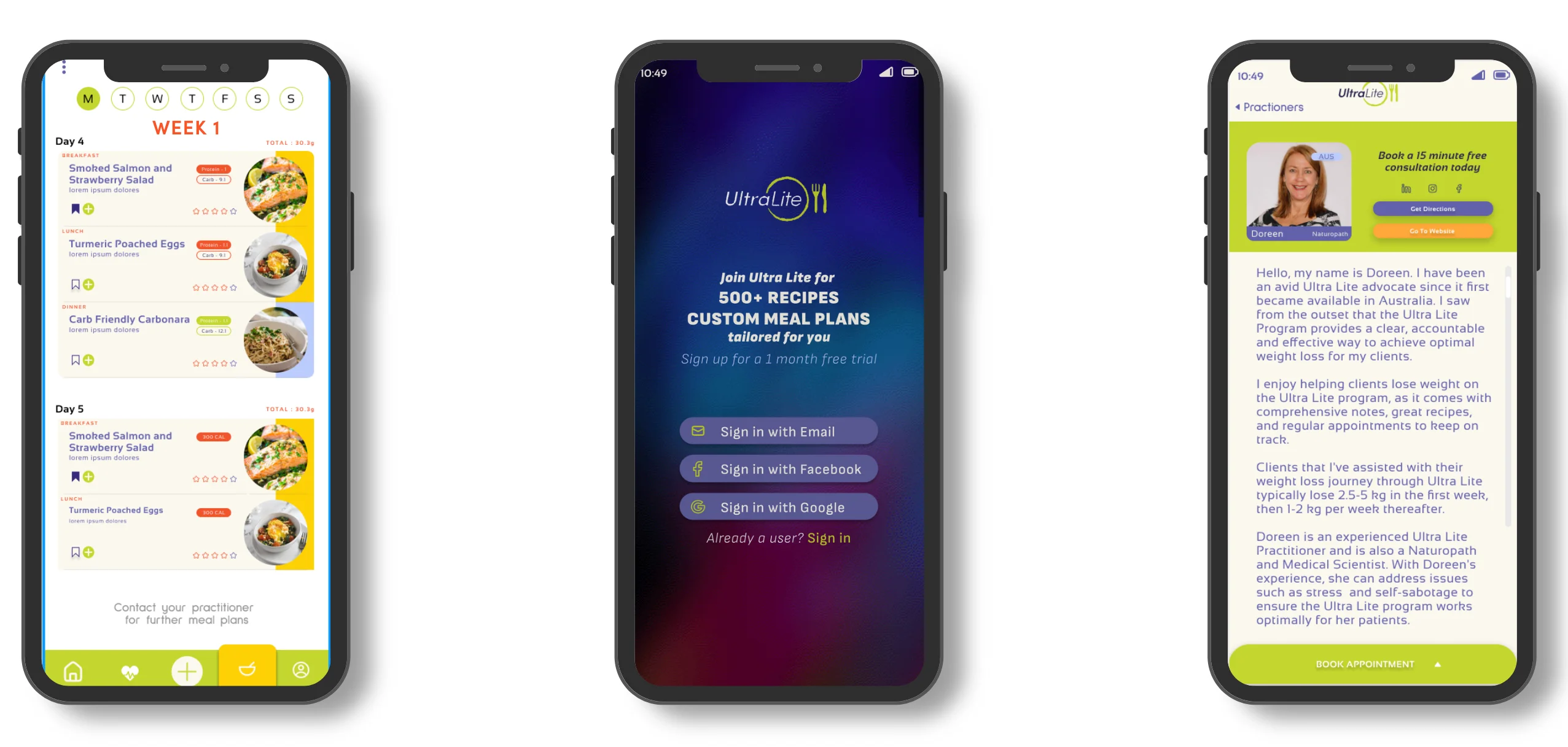The Keto diet involves reducing the intake of carbs and replacing them with fat. Some people aim to cut all carbs and sugars out of their diet. However, for the average person, cutting out all carbs may be too extreme for their lifestyle, so reducing carbohydrate intake is often the popular choice
KETO GUIDE
Find out more about Keto and what makes our program unique.
What Is Keto?
Keto is a diet which focuses on removing processed foods and sugar from our diet and replacing with moderate proteins and complex carbs. Sugar and processed foods are hard for the body to digest, resulting in weight gain, health problems and more. A ketogenic diet helps to reset the body to work more efficiently and process the foods we eat into energy without turning into fat stores in the body.
What Is Clean Keto?
Clean Keto is a stricter form of Keto that is focused more on whole foods from quality sources while limiting the intake of processed foods. It contains foods that are anti-inflammatory in nature, similar to that of a Mediterranean Diet. Most people on a clean Keto diet also prefer eating meat that is organic and sustainably raised.
Because of this, clean Keto foods are acknowledged as more nourishing since the lack of food processing means the vitamins, minerals, and antioxidants are retained. People may also feel better when eating clean Keto, as there is a lack of artificial sweeteners, flavourings, or colourings added. This is different from the alternative “lazy” Keto which contains contains high amounts of processed, which can prevent many of the benefits from a clean, anti-inflammatory approach to Keto.
Clean keto is often the preferred keto option when there is a health goal in mind, like losing weight. Eating a clean keto style may also help someone feel more ‘in control’ of their eating since cooking is encouraged over ordering takeout or fast food.
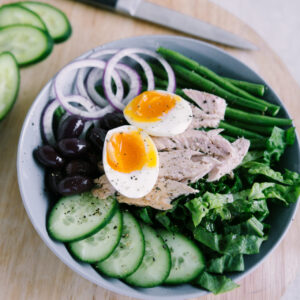




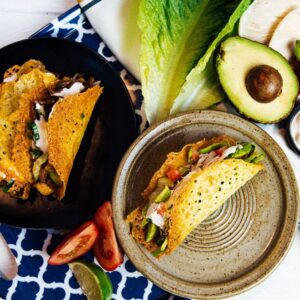
The Benefits of The Ultra Lite Keto Program

Lose Weight
You Can Lose Up To 10kgs in 6 Weeks on Our Program
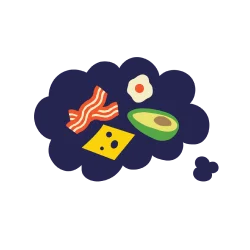
Decrease Cravings
Our Range of Drink-based Supplements Help You Feel Fuller For Longer

Balance Your Mood
Keto can help by lowering inflammation, and balancing energy levels in the brain

Increase Your Energy
Ketones offer a longer-lasting, more stable source of energy
Most people start a keto diet because they are looking to lose weight, but there are also numerous benefits linked to a low-carb/keto way of eating, some of the other research-backed benefits include::
- Decreased insulin resistance
- Improved acne
- Promotes heart health
- May reduce the risk of developing certain types of cancer
- May help ease PCOS symptoms
- Improved blood pressure
The reason behind these benefits is the weight loss and health improvements due to the dietary change. Individuals on the Keto diet avoid large quantities of refined sugars and carbohydrates, often seen in traditional ‘junk food’ and linked to increased risk of diabetes, high blood pressure, and obesity(3).
Can the Keto Diet Help with Weight Loss?
The keto diet has shown benefits in weight loss for many people. Researchers found that adults who followed the keto diet for 8 weeks lost nearly 5 times as much body fat as those who followed a low-fat diet(4).
Low-carb diets like the keto diet also encourage eating more healthy fats and protein-rich foods, regulating appetite and keeping you fuller for longer(5). Ultimately, any diet that helps you shed the extra weight can help improve your blood sugar and cholesterol levels, leading to a range of health benefits.

What Foods Can You Eat?
So, what foods can you eat while on the Keto diet? While it may seem complicated to determine what you can and can’t eat, it is relatively simple! The key idea is to avoid eating foods that are high in carbs or carb-based.
Carbohydrates make foods taste sweet or starchy, so avoid foods like grains, sugar, potatoes, juice, and candy.
Here’s a list of foods that you should reduce or avoid when on the keto diet:
- Fruits, except small portions of berries
- Grains and wheat, like rice, bread, pasta, and cereal
- Starchy vegetables, like potatoes, sweet potatoes, and parsnips
- Sugary treat foods, like soda, smoothies, juices, candy, and cake
- Alcohol, including beer, wine, and spirits
- Sugary condiments, like jam, ketchup, teriyaki sauce, and barbecue sauce
- Beans and legumes, like chickpeas and kidney beans
Now that that’s out of the way, let’s get on to what you can eat! For those on a Keto diet, base your meals on low-carb whole food sources, like meat, eggs, nuts, and low-carb vegetables. Here’s a list of foods you can eat on the Keto diet:
- Meat, like beef, lamb, pork, chicken, and sausage (grass-fed and free-range prefered)
- Fish, like tuna, salmon, and mackerel
- Eggs
- Butter, cream, and other dairy products
- Unprocessed cheeses, like brie, cheddar, mozzarella (avoid American-style sandwich cheeses)
- All nuts and seeds
- Plant oils, like coconut and olive oil
- Low carb-veggies, like avocados, kale, onions, tomatoes, and capsicum
- Low-carb condiments, like salt, pepper, herb rubs, and spices
When to avoid a Ketogenic Diet
While Keto is a great diet for many reasons, it is not recommended for everyone. The following people should avoid a Ketogenic diet for health reasons:
- Pregnant Women
- Breastfeeding women
- People with Liver Cancer
- Not recommended for people who have had their gallbladder removed
- Major surgery – we recommend people wait 6 months before commencing a Ketogenic diet
- Side effects can occur while beginning the keto diet, like the keto flu, so talk to your doctor if you have any concerns.
Ultra Lite gets results, so start your weight loss journey today
Download our App and Sign Up to Get Started on Your Ultra Lite Keto Journey Today
What Our Clients Have to Say
I’m really thankful for the program. I’m not sure you can improve too much as you get out of it what you are prepared to put in. I found the key for me was meal prep and having a week worth of lunches and to or 3 days worth of breakfast ready to go for when things got busy. Once again Thank You.
Kaye Symes
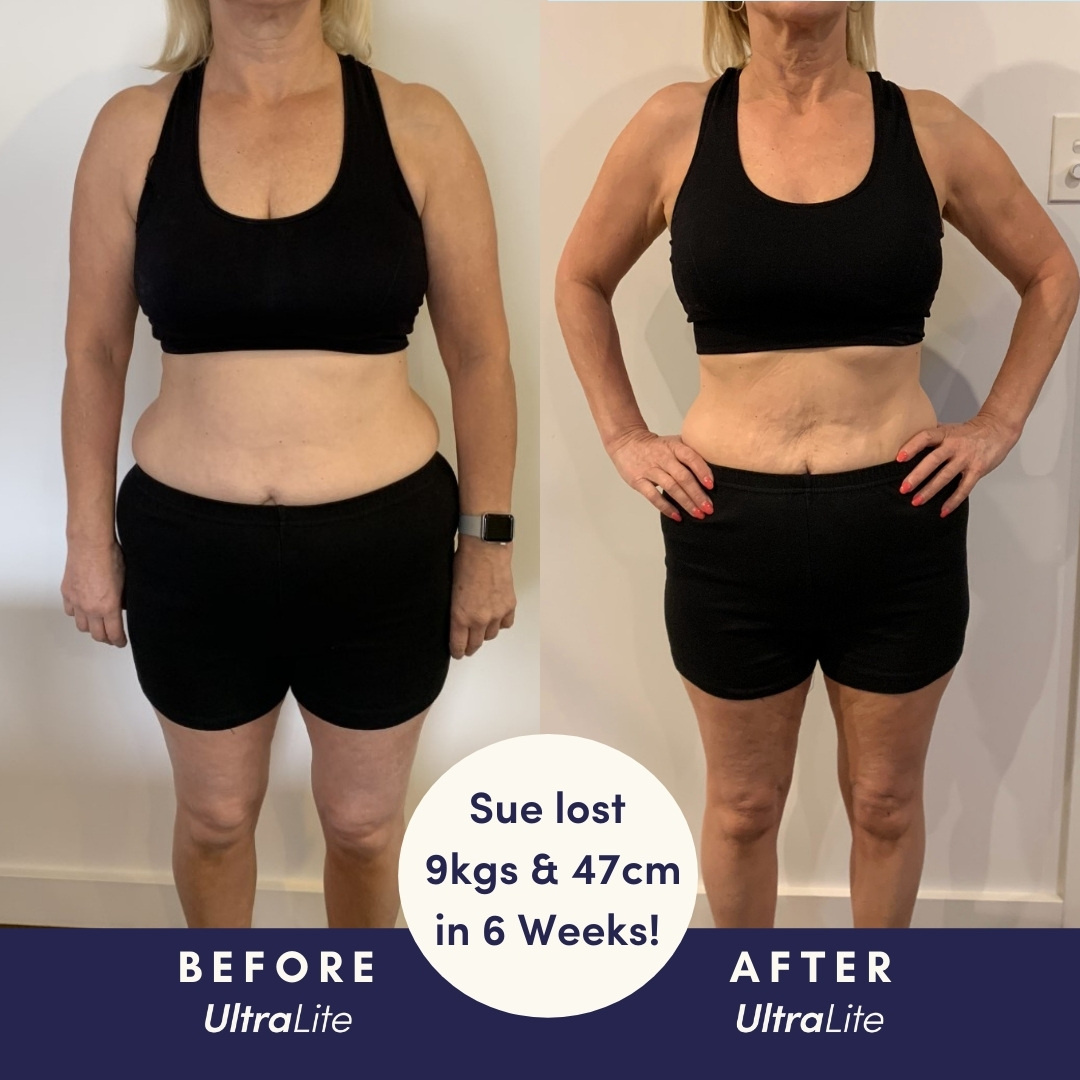
"Thank you for the lovely experience. I’m blown away by my results. This is not the end for me it’s just the beginning. I’m happy to say I will be back in October as well. Best decision EVER!"
Sue McInnes
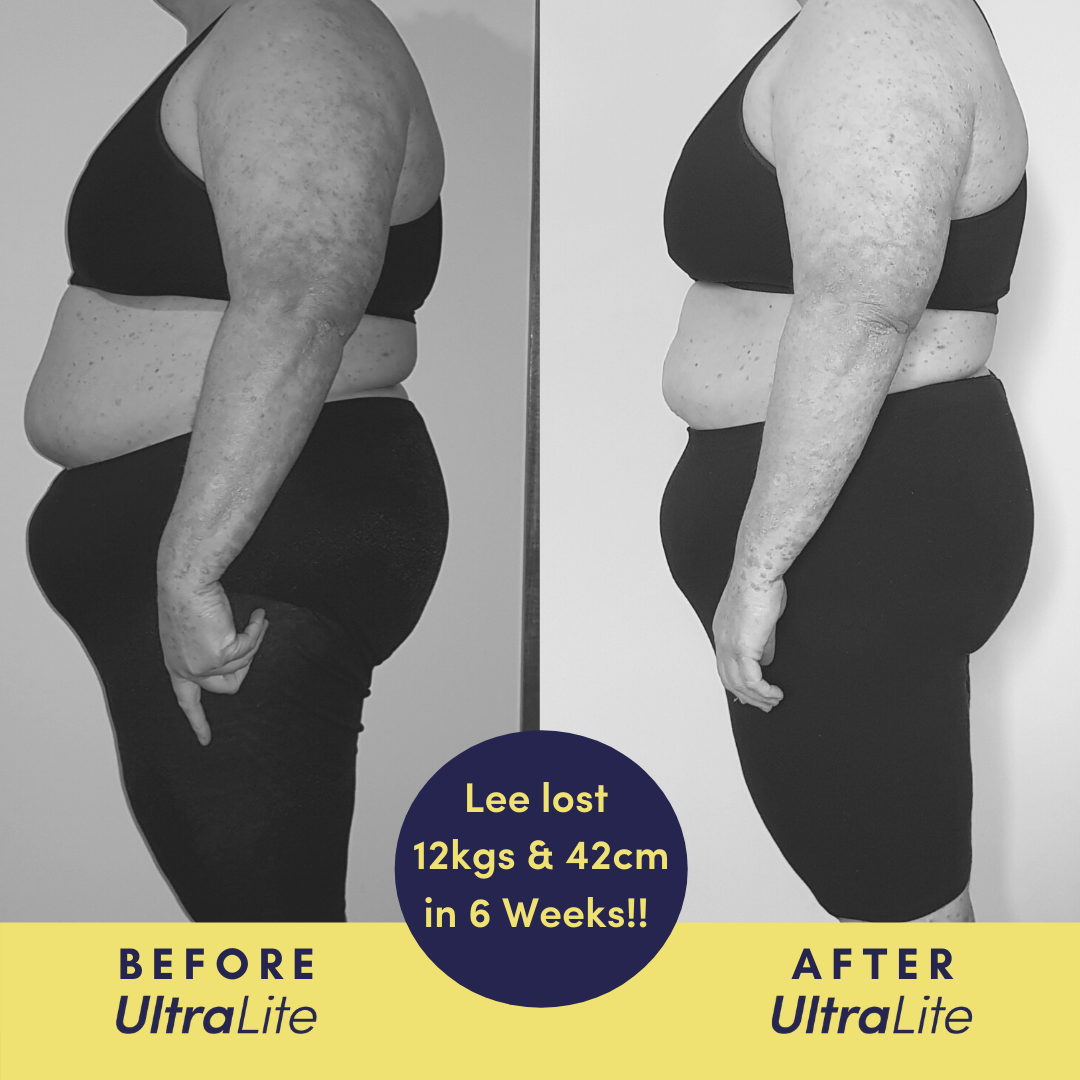
I finished the 6-week challenge on 6th September 2020 and dropped 12.3kg and 42cm overall. I am so happy that I did the Ultra Lite challenge and have drawn up my chart to continue to my goal weight, which consists of another four, 6-week challenges. I thank the awesome team at Ultra Lite for their help. Nothing was an issue even through the challenges of the covid-19 lockdowns and organising themselves through this difficult time. I just cannot recommend Ultra Lite enough. If you just follow the plan and advice you will lose weight and doing it through one of the challenges, with the other participants you do not feel alone. Ultra-Lite has been the best decision I have made in a long time.
Lee Gale
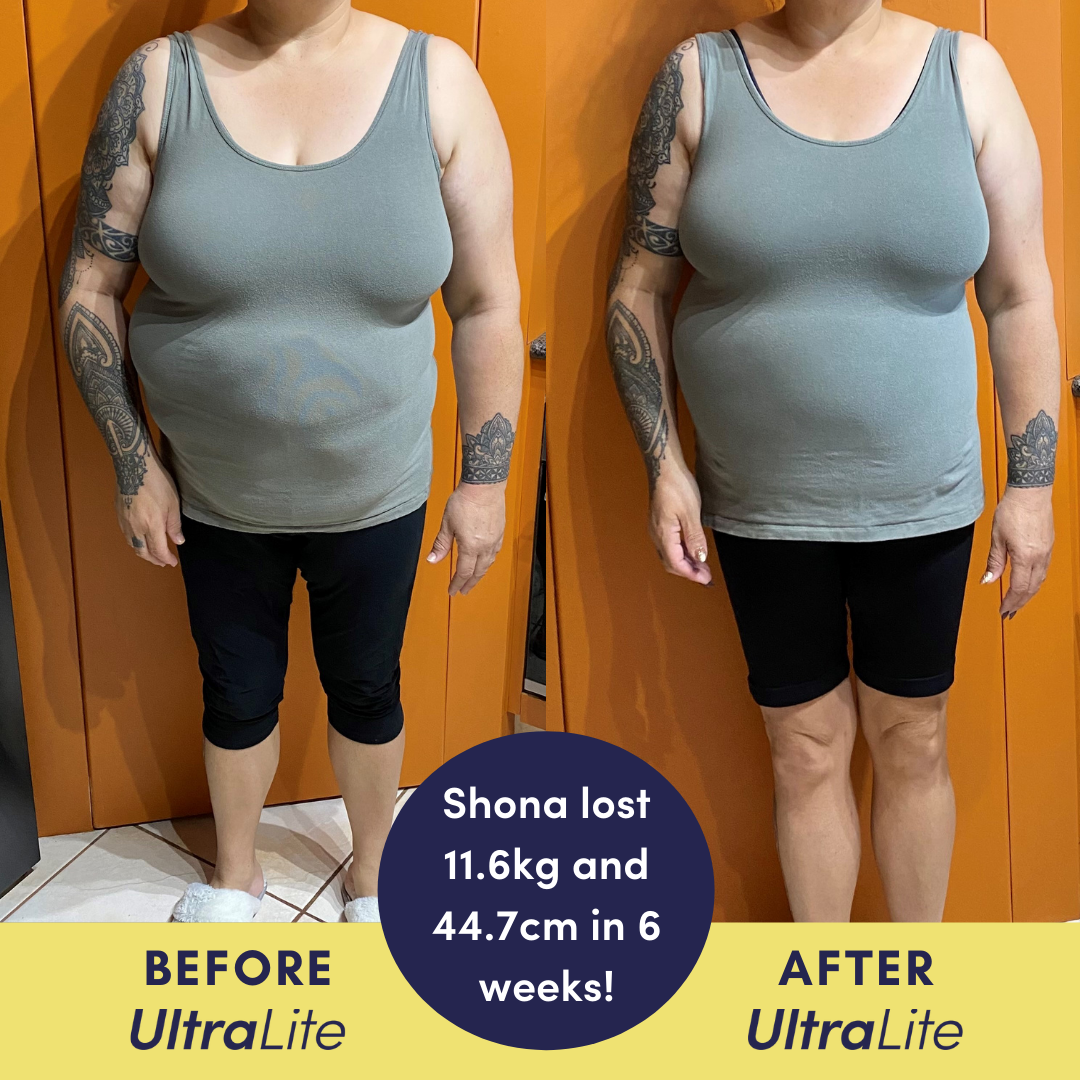
Ultra Lite has changed my life. I have changed my eating habits for the better since being on the program. Not only did I loose excess weight but I am not as bloated, not as hungry & don’t eat as much as I would have before. The biggest benefit for me is that I can finally sleep. I go to sleep so easily now. I sleep through the night & wake up feeling so refreshed. I have also reduced the amount of medications I have needed for so many years, saving me money & countless trips to the GP & Chemist too. Everyone has noticed not only my weight loss but how much happier & positive I have been & it’s all thanks to the kick start I got from doing the Ultra Lite 6 week Program.
Shona Hau
This is the 5th time on Ultra Lite, first did it 10 years ago, it’s a great program, first few days are always difficult but it gets easier and you feel so much better. I noticed you don’t just lose some unwanted kilos but helps with your energy, mood, sleep feeling less bloated and overall just great 👍 good luck all, use the group for support cheers
Chris Mcnair
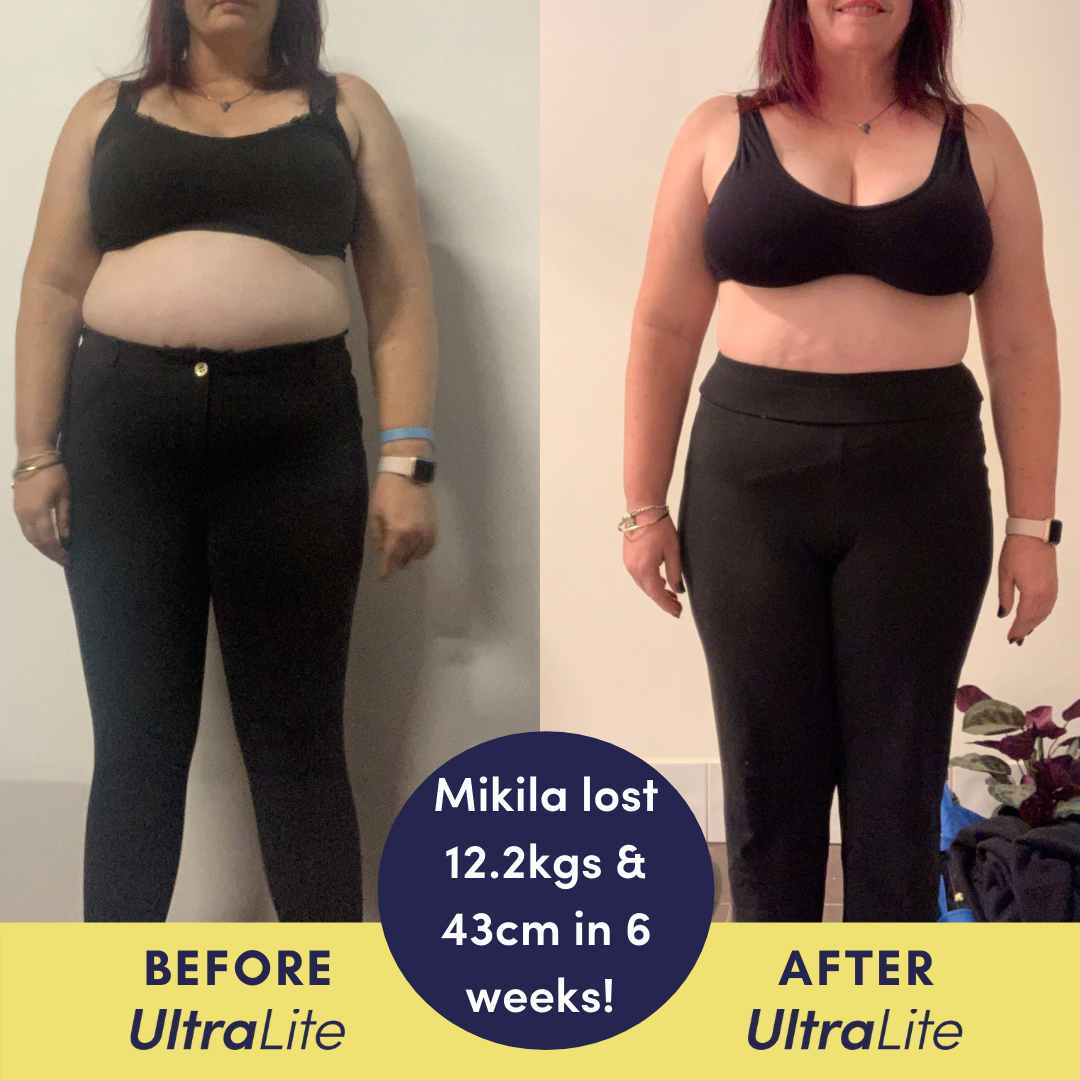
Ultra Lite works wonders. I lost over 12Kg in just 6 weeks. The support of the practitioner, the Facebook Group support and general chat created a wonderful experience. I was very strict on myself with my portion control and weighed everything. I forced myself to drink the water and I missed my coffee for the first week. I highly recommend Ultra Lite, I was never hungry and the recipes were absolutely delicious. Thank you Ultra Lite.
Mikila Sharkie
I’m amazed at the results in the 6 weeks I had on the program. I found the challenge suited my needs as I could do this from home during these covid-19 times. The website and recipes were great to have available and the online support from my practitioner who was just an email away when I had any questions was wonderful. I still have kilos to lose and I look forward to continuing to get to my goal weight. Thanks to all for your support including the Facebook community - I highly recommend the challenge and look forward to continuing on the keto journey.
Karen Rollings (Kay Spencer)
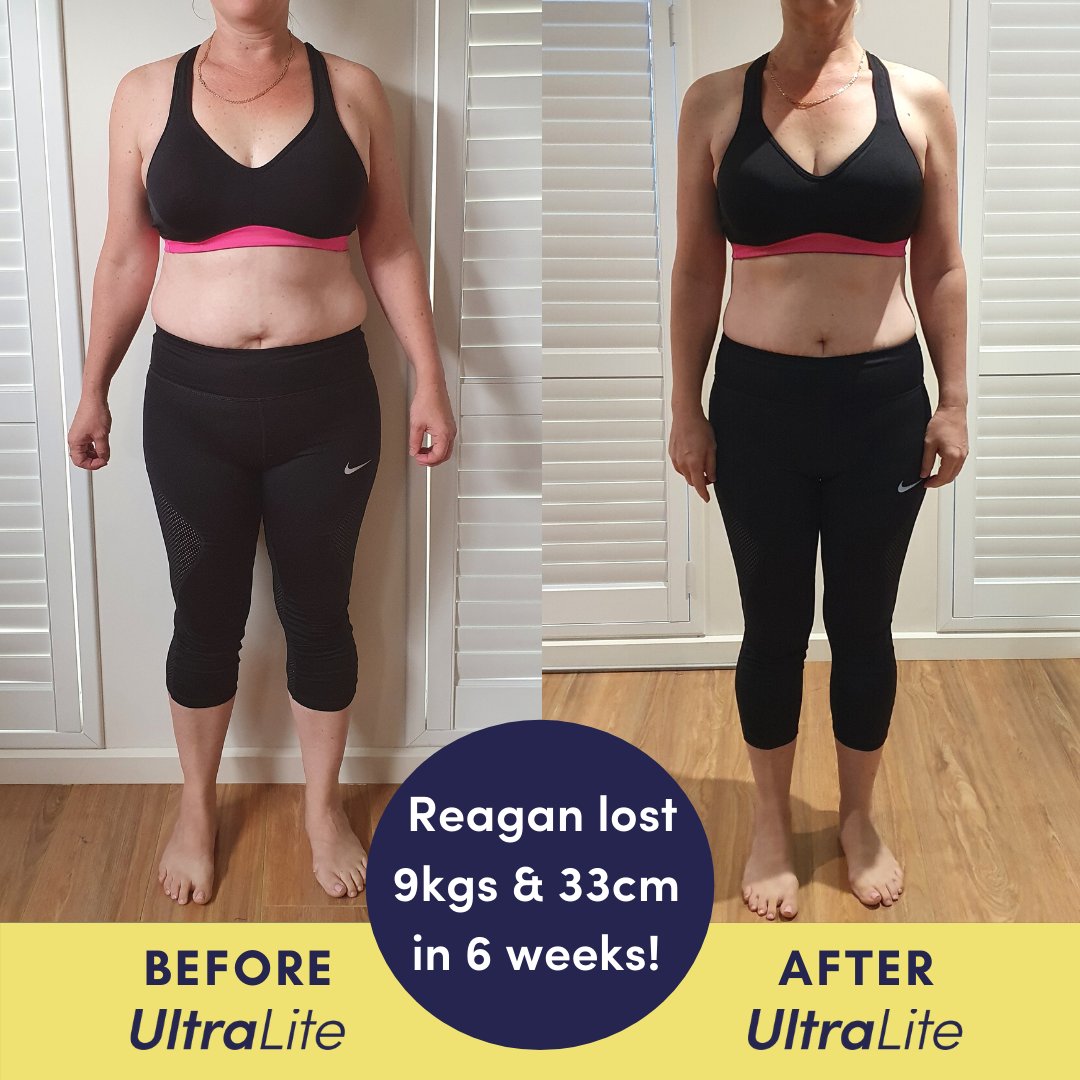
Love the Ultra Lite Program. I have been on the program previously with results and just completed the 6 Week Challenge with Awesome results. The recipes are easy to follow and tasty. Yes it can be a challenge sticking to it if you are a sweet tooth like me, but the Marshmallow with your Ultra lite Chocolate drink is amazing.. let's say I'm a bit addicted to it for my night time drink. The Ultra Lite program also educates you on the food and food preparation for our busy lifestyles, I have more energy and have found that I can focus more while at work for longer. I have thyroid problems but have noticed that my levels have improved and I don't shake anymore. Thank you Ultra lite for I know I will now be eating the keto way. I absolutely 100% believe in this program for losing weight and feeling great about myself. Thank you
Reagan Short
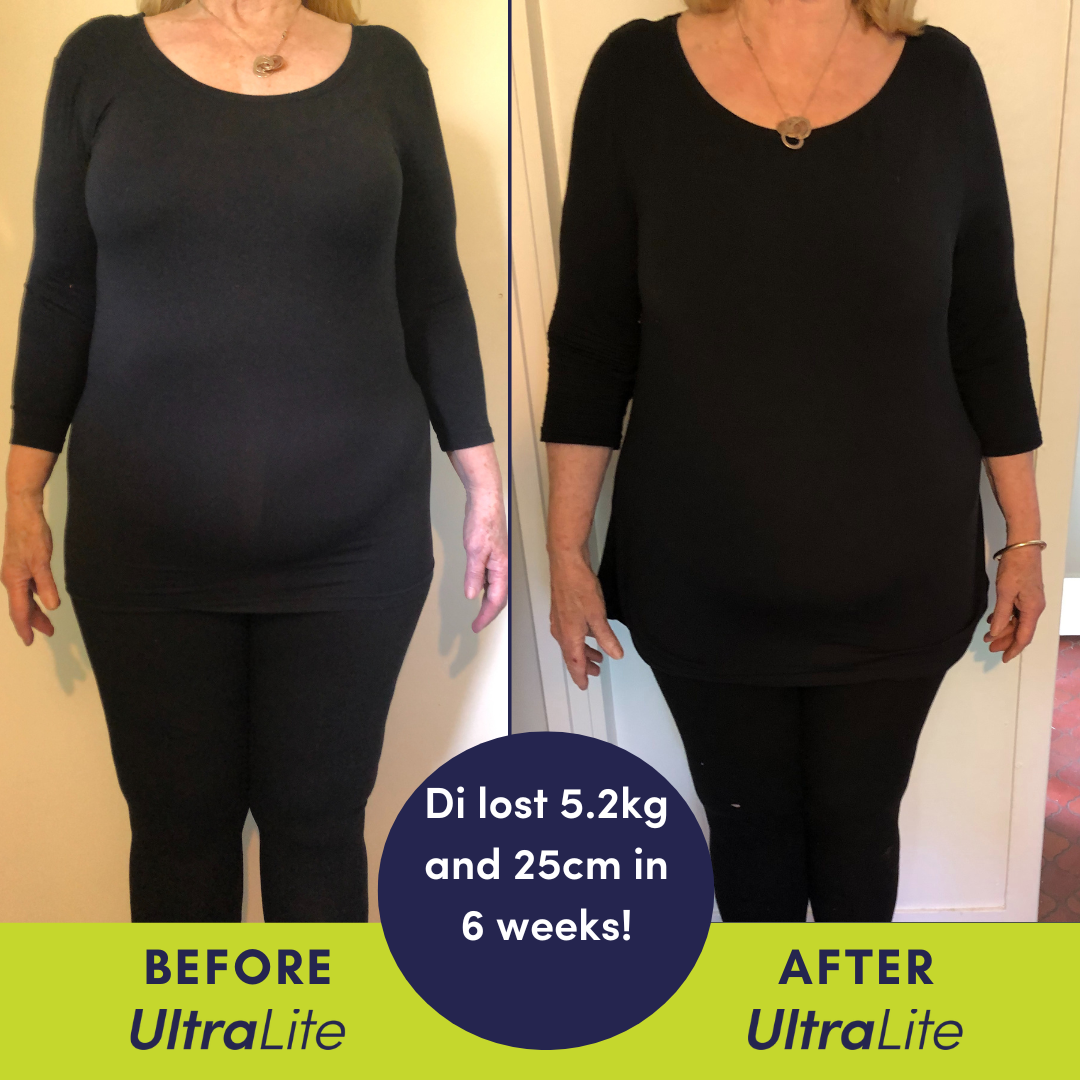
Ultra lite is great and it works very well I’ve used it before and had terrific results! The 6 week challenge was good with a lot of extra information provided and expert advice and support. In the end it’s up to you how successful you are but they do all they can to guide you and provide recipes meal plans and extra hints to get you to your own goal Highly recommended.
Di Baker
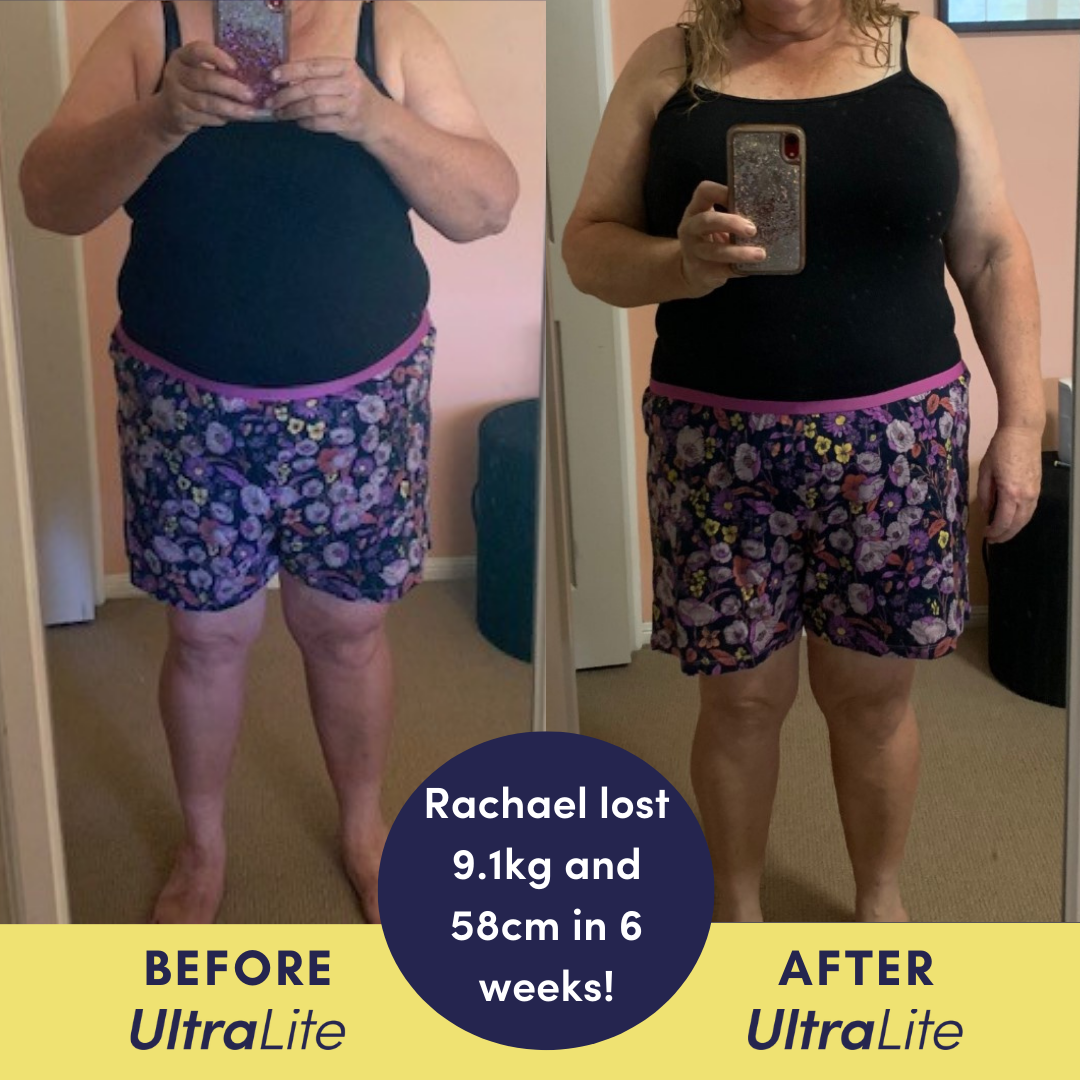
My total loss for the challenge in pounds was 22.2 pounds. Other than that, I feel better, more energy, eating better and learning to love cooking and preparing food again. I have really enjoyed doing the challenge and look forward to continuing my good eating habits.
Rachael Cooper

The Ultra Lite 6 week challenge far exceeded my expectations. The issues I have had in the past are that most diets either rely on package meals and snacks you buy from the program or are so restrictive it is not maintainable after the program ends. Ultra Lite is different. With its focus being on whole, natural foods, I found myself developing a healthier relationship with foods and fueling my body with nutrients that you can’t get from processed packaged meal replacements. Aside from the amazing results, I have managed to change my lifestyle for the best and feel great! My body now craves foods that are good for me and I have more energy than ever before. Not only has this program changed my world but my family is enjoying the benefits of healthier foods and a happier healthy me.
Emily Smith

The UltraLite 6 week challenge was a great motivator to help me reach my health goals. The meal plans were tasty and easy to prepare. The satchets were a great help in containing my sweet tooth and will be a staple in my life from now on. I feel so much healthier eating a ketogenic diet, I have extra energy and find my mood is happy and stable. I highly recommend Ultra Lite!

